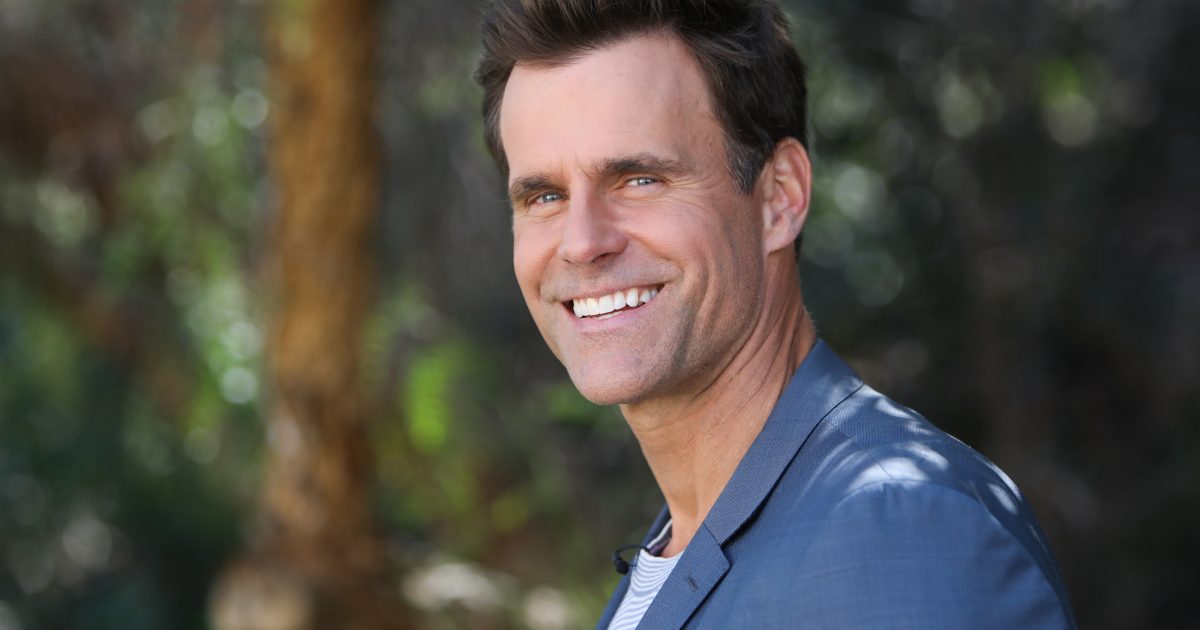Losing a Loved One to Cancer as a Cancer Survivor
- ‘General Hospital’ star Cameron Mathison, 52, was diagnosed with renal cell carcinoma, the most common type of kidney cancer, in 2019. He recently got an ‘all clear’ on his cancer check-up.
- On Tuesday, he shared a heartbreaking post announcing his mother’s death from brain cancer. She’d been battling the disease since 2020.
- Mathison spent many precious moments with his mother before her death, but losing a loved one to cancer is inevitably painful. Everyone's journey of grief looks different, but therapy and support groups can be wonderful options to explore as you take time to heal from your immeasurable loss.
Mathison was diagnosed with renal cell carcinoma, the most common type of kidney cancer, in 2019. Doctors found his tumor after he self-requested an MRI because he’d been dealing with fatigue and stomach issues for years. He then had the tumor removed and doctors did not find any indication his cancer had spread, which meant he didn’t need chemotherapy or radiation treatments.
Read MoreBut despite all of his family’s hardships with cancer, Mathison said he was striving to "make life meaningful now" by benefiting others, spreading joy and kindness, volunteering and being there for others.
“I don't want to get too metaphysical, but to work on things in your life you can bring with you after you die,” he explained of his goals. “These things are what, for me, makes life meaningful with your family, your friends. I try to do it even with strangers and people that have different views than me. The more we can feel close together and connected and benefit each other, it's what life is all about from my perspective."
Sadly, the cherished moments of connection with his mother recently came to end. In an Instagram post, Mathison shared a heartfelt tribute to Loretta.
View this post on Instagram
“Mom, you left this world a better placeðŸ™ðŸ¼,” he wrote. “You were the center of our family with so much love and devotion for all of us. You were there for me in my absolute toughest times, and celebrated all my successes with so much love and enthusiasm.”
The photos in the post gave an intimate look into Mathison’s family life. One was of his family at Christmastime, some were loving pictures of his mother and father and another was a funny photo of his mom doing yoga with a goat balanced on her back. The pictures varied in content, but all were full of joy and memories.
“I have so many beautiful and incredible memories I don't even know where to startðŸ™ðŸ¼,” he wrote. “You will always be with me in my heartâ¤ï¸ I love you and miss you so much I can't put into wordsâ¤ï¸ðŸ™ðŸ¼.”
Dealing with Grief
Grief is inevitable and essential when you're forced to say goodbye to a loved one. Giving yourself privacy can be hugely beneficial, but opening up to others, like Cameron Mathison has done via social media and with SurivorNet, can also allow for better healing.
In a previous interview with SurvivorNet, Doug Wendt shared his thoughts on the grieving process after losing his wife, Alice, to ovarian cancer.
"We're never gonna move on, I don't even think I want to move on, but I do want to move forward," Wendt said. "That's an important distinction, and I encourage anybody who goes through this journey as a caregiver and then has to face loss, to think very carefully about how to move forward."
Everyone's journey of grief looks different, but therapy and support groups can also be wonderful options to explore. It's also important to keep in mind that time does not heal everything, but it certainly helps.
In an earlier interview with SurvivorNet, Camila Legaspi shared her own advice on grief after her mother died of breast cancer. For her, therapy made all the difference.
"Therapy Saved My Life": After Losing A Loved One, Don't Be Afraid To Ask For Help
"Therapy saved my life," Legaspi said. "I was dealing with some really intense anxiety and depression at that point. It just changed my life, because I was so drained by all the negativity that was going on. Going to a therapist helped me realize that there was still so much out there for me, that I still had my family, that I still had my siblings."
Legaspi also wanted to remind people that even though it can be an incredibly difficult experience to process, things will get better.
"When you lose someone, it's really, really, really hard," Legaspi said. "I'm so happy that I talked to my therapist. Keep your chin up, and it's going to be OK. No matter what happens, it's going to be OK."
Learn more about SurvivorNet's rigorous medical review process.


